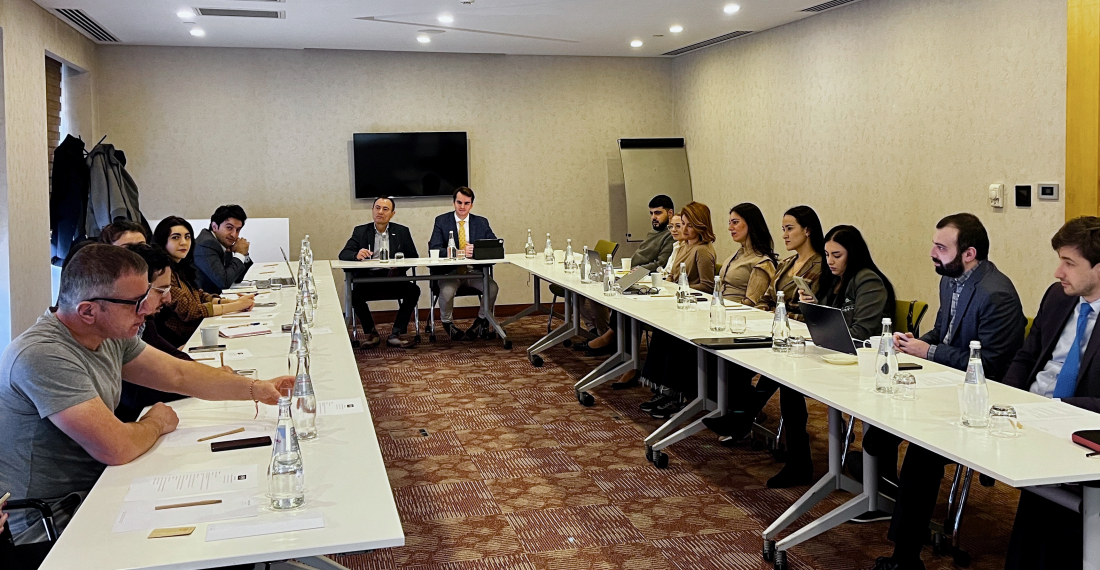LINKS Europe held its first event within the recently launched EU4Peace III initiative in Tbilisi on Thursday 30 January. Armenian and Azerbaijani participants engaged in an open and constructive discussion on how to shape a dialogue best suited to today's realities.
The meeting was opened by Mr. Maximiliaan van Lange, Deputy Director of LINKS Europe, who introduced the EU4Peace III initiative, outlining its objectives and strategic approach. He highlighted LINKS Europe's component focusing on the promotion of inclusive dialogue and engagement. He explained that this component will have five thematic groups, consisting of 10 participants each from Armenia and Azerbaijan, and thematic groups would hold face-to-face and virtual meetings over the coming months. Each group will be led by a designated moderator and the results will be compiled in a final report.
The thematic groups will convene to discuss the following topics:
(1) Climate Change & the Green Economy;
(2) Peace & Security;
(3) Governance;
(4) Regional Connectivity;
(5) Gender and Diversity
The event included two interactive workshop sessions moderated by Mr Anri Stepanian and Ms Alexandra Dumitrescu from LINKS Europe. These sessions facilitated an open exchange of perspectives, ensuring that the voices of all participants were heard and taken into account. The discussions provided valuable insights into existing challenges and opportunities, and strengthened the role of LINKS Europe within the EU4Peace III framework.
The meeting concluded with a discussion on next steps, highlighting the importance of sustained engagement. It was noteworthy that almost all participants were involved in the EU4Peace III initiative for the first time.
Armenia-Azerbaijan Expert Political Dialogue Platform
On 2nd April, at a meeting in The Hague, LINKS Europe will launch the Armenia-Azerbaijan Expert Political Dialogue Platform. The platform is a parallel, mutually reenforcing initiative bringing together experienced Armenian and Azerbaijani experts and stakeholders. It is expected that one of the main tasks of the platform in 2025 will be to support the thematic groups, particularly in the phase of preparation of their reports.
EU4Peace III Initiative
The EU4Peace III initiative, supported and funded by the European Union, aims to contribute to the sustainable normalisation of relations between Armenia and Azerbaijan. By broadening the engagement of social groups, the initiative aims to link political processes to wider societal transformation.







